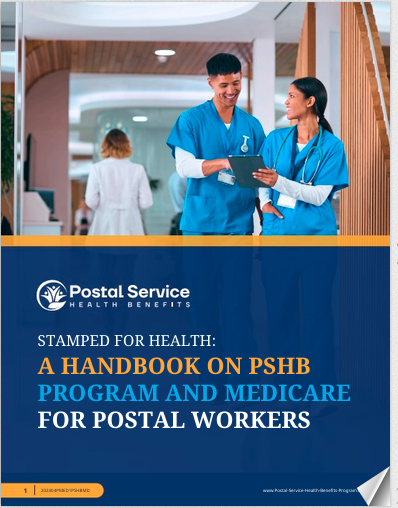Key Takeaways
-
Medicare Advantage plans offer a comprehensive alternative to Original Medicare by bundling medical, hospital, and sometimes prescription drug coverage, often with added benefits.
-
These plans have become increasingly popular among seniors due to their tailored options and cost predictability, though they require careful review to match your healthcare needs.
Why Medicare Advantage Plans Stand Out
When exploring your healthcare options under Medicare, you might come across Medicare Advantage plans, also known as Part C. These plans have grown in popularity for their unique approach to covering medical, hospital, and sometimes prescription drug needs in a single plan. Unlike Original Medicare, Medicare Advantage plans are administered by private insurers but must follow rules set by Medicare. Here’s what makes them special:
-
Comprehensive Coverage: Medicare Advantage plans bundle hospital (Part A), medical (Part B), and often prescription drug (Part D) coverage into one package. This combination provides convenience, as you don’t need separate plans for different healthcare needs.
-
Additional Benefits: Many plans include extras like dental, vision, and hearing coverage, which aren’t typically offered under Original Medicare. Some may also provide wellness programs or transportation services for medical appointments.
-
Cost Management: Medicare Advantage plans often have annual out-of-pocket maximums, protecting you from excessive healthcare costs. Once you reach this limit, the plan covers 100% of eligible expenses for the remainder of the year.
Why Seniors Are Embracing Medicare Advantage Plans
The rising popularity of Medicare Advantage plans is no accident. They appeal to seniors for several reasons:
Simplified Healthcare Management
Instead of juggling multiple plans for hospital, medical, and prescription drug coverage, Medicare Advantage simplifies things. By consolidating services into one plan, you have fewer monthly premiums to track and a single point of contact for questions or issues.
Customizable Options
Medicare Advantage plans are known for their flexibility. You can choose from different plan types, such as Health Maintenance Organizations (HMOs) or Preferred Provider Organizations (PPOs), depending on your preferences for provider networks and referrals.
Predictable Costs
These plans often come with fixed copayments and coinsurance rates, making it easier to budget for healthcare expenses. The annual out-of-pocket cap adds another layer of financial security, which is particularly appealing as healthcare costs rise.
What You Should Know About Medicare Advantage Plans
While Medicare Advantage offers many benefits, it’s not a one-size-fits-all solution. There are important considerations to keep in mind:
Network Restrictions
Many Medicare Advantage plans require you to use healthcare providers within their network. HMOs, for example, typically won’t cover out-of-network care unless it’s an emergency. PPOs provide more flexibility but may come with higher costs for out-of-network services.
Prior Authorizations
Some plans require prior approval for certain treatments or medications, which could delay care. Understanding these requirements before enrolling ensures you won’t encounter surprises when accessing medical services.
Plan Reviews During Open Enrollment
Every year, Medicare Advantage plans can change their coverage, costs, and networks. During the Medicare Open Enrollment period (October 15 to December 7), review your plan to ensure it still meets your needs. This is also the time to switch plans if your current one no longer aligns with your healthcare goals.
How Medicare Advantage Fits with PSHB
If you’re part of the Postal Service Health Benefits (PSHB) program, Medicare Advantage plans can integrate with your healthcare coverage, particularly if you’re Medicare-eligible. Here’s what to keep in mind:
Coordination with Medicare Part B
Certain PSHB plans require Medicare-eligible enrollees to have Part B. Enrolling in Medicare Advantage can complement this requirement, as many plans offer benefits like reduced out-of-pocket costs and even premium reimbursements for Part B enrollees.
Prescription Drug Integration
Many Medicare Advantage plans include prescription drug coverage, which aligns with PSHB’s focus on comprehensive healthcare. For Medicare-eligible postal employees and annuitants, this integration can simplify managing medications while keeping costs predictable.
Access to Nationwide Networks
For postal retirees who may relocate or travel frequently, certain Medicare Advantage plans offer nationwide networks, ensuring continued access to healthcare providers wherever you go.
What to Watch Out For
Limited Coverage for Non-Medicare-Eligible Family Members
If your family members aren’t eligible for Medicare, Medicare Advantage won’t cover their healthcare needs. You’ll need to maintain separate coverage under PSHB or another health plan.
Costs Beyond Premiums
While Medicare Advantage plans often advertise low monthly premiums, there are additional costs like copayments, coinsurance, and deductibles. These should be factored into your decision-making process.
Plan Complexity
With so many options, understanding the specifics of each Medicare Advantage plan can be daunting. Be sure to compare plans carefully, focusing on benefits, network restrictions, and out-of-pocket limits.
Making the Most of Your Options
To choose the right Medicare Advantage plan, consider these tips:
Assess Your Healthcare Needs
Evaluate how often you visit doctors, the medications you take, and whether you need specialist care. Match these needs with the benefits and network coverage offered by potential plans.
Use Available Resources
Medicare.gov provides tools to compare plans side-by-side. Additionally, PSHB participants can consult plan brochures for detailed information about Medicare integration and additional benefits.
Plan Ahead
During the Medicare Open Enrollment period, take time to review Annual Notice of Change (ANOC) letters to stay informed about modifications to your plan. Planning ensures you won’t face unexpected disruptions in care or costs.
Exploring New Avenues in Senior Healthcare
Medicare Advantage plans continue to gain traction among seniors due to their convenience, comprehensive coverage, and predictable costs. By carefully evaluating your healthcare needs and reviewing plan options, you can make an informed choice that aligns with your lifestyle and budget. PSHB participants, in particular, have unique opportunities to integrate Medicare Advantage plans with their existing benefits, ensuring a seamless transition into retirement healthcare.






